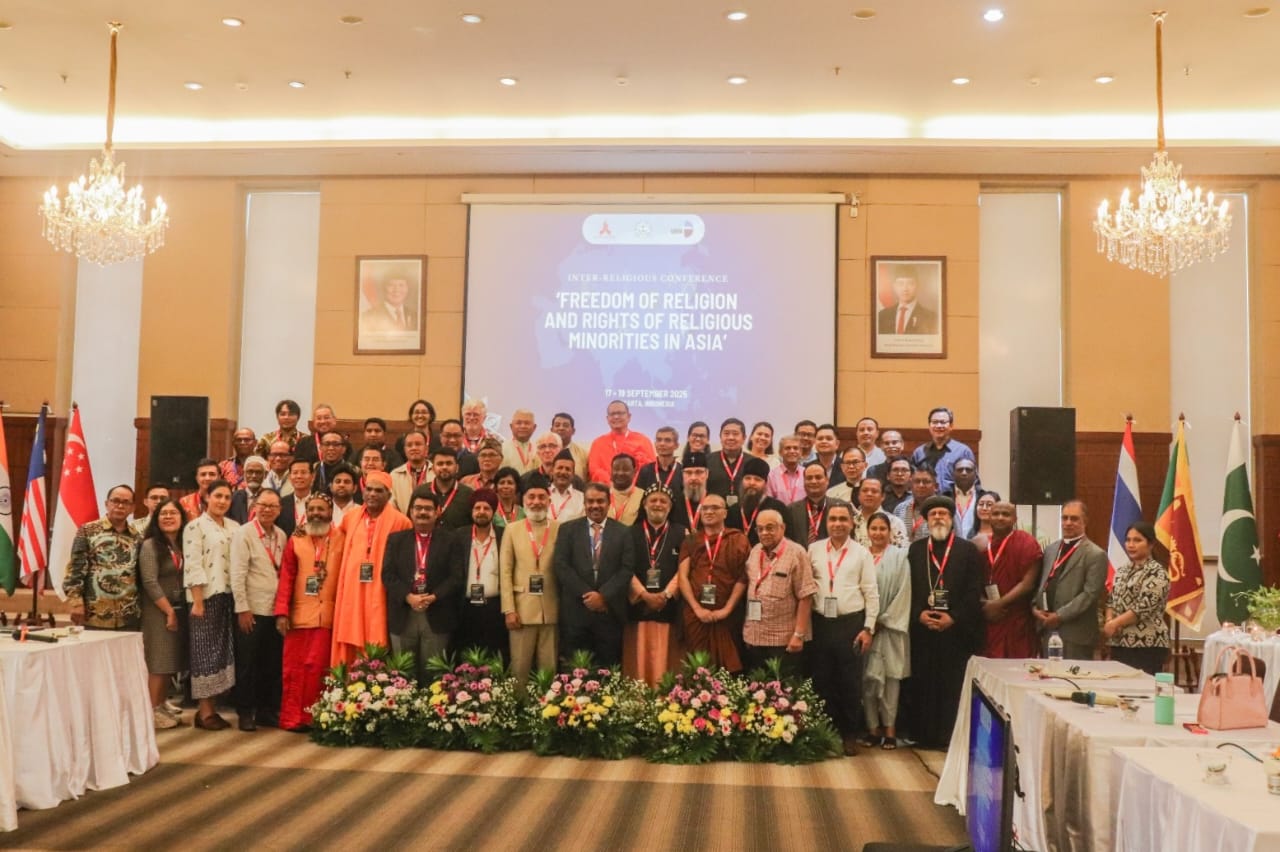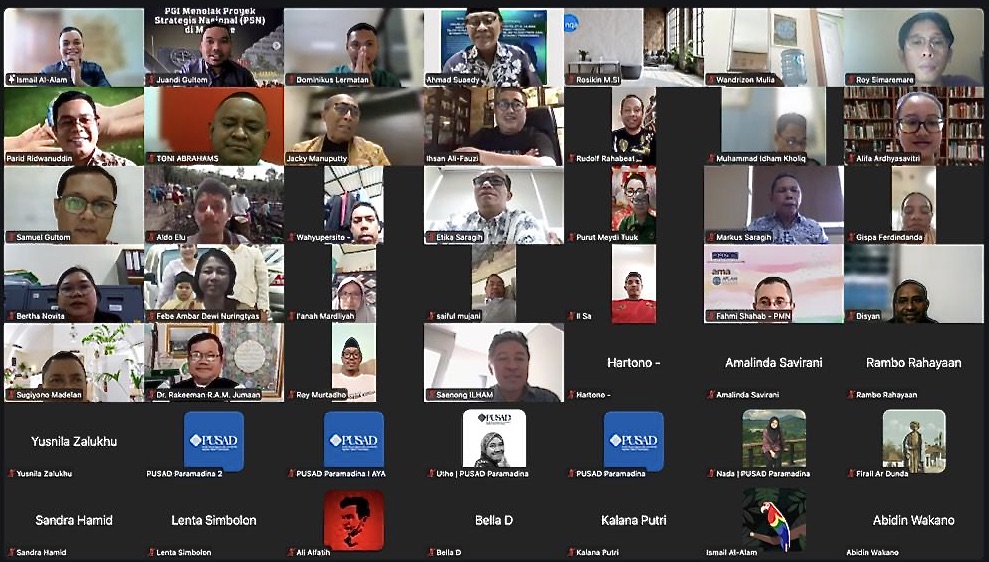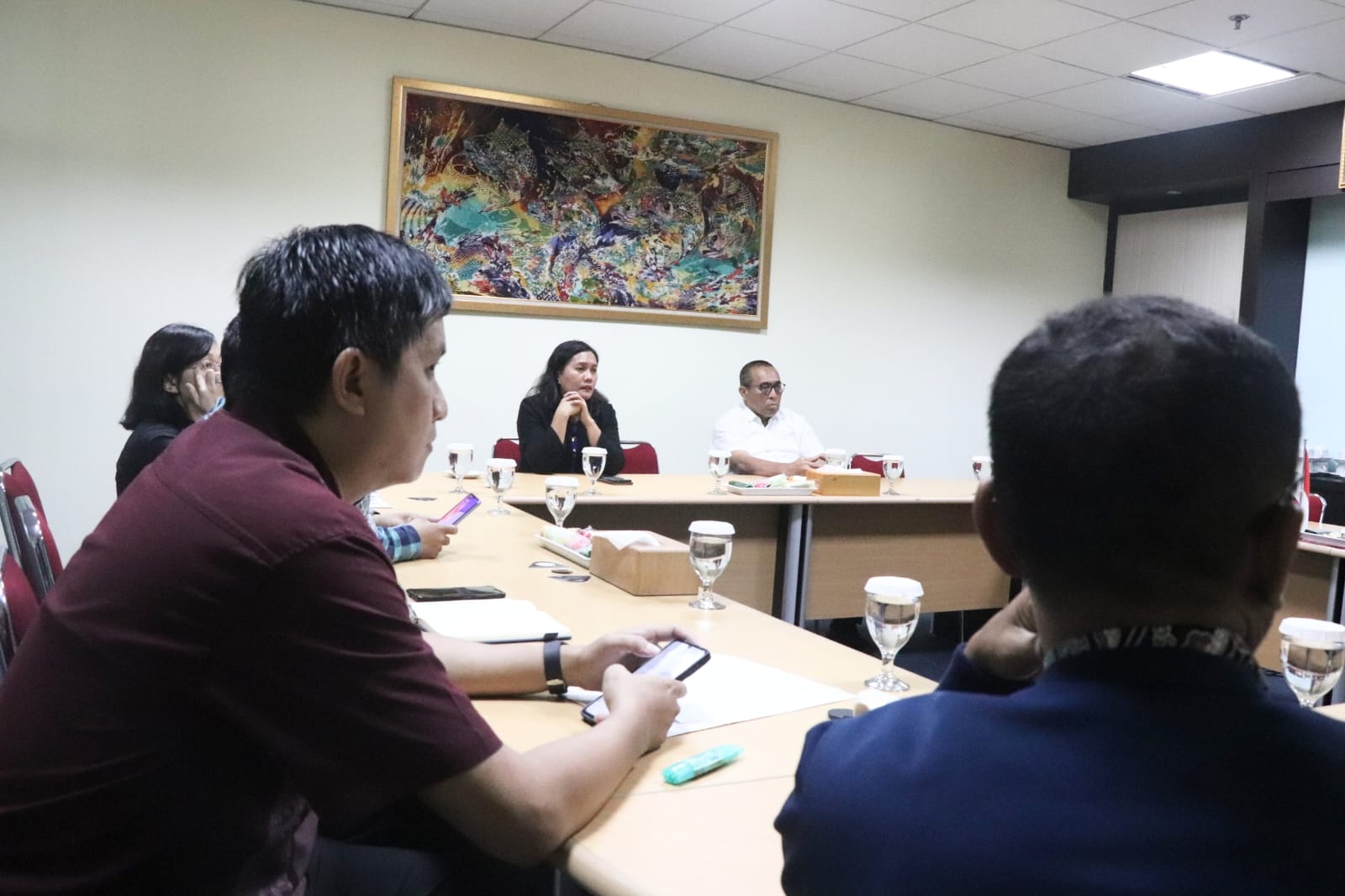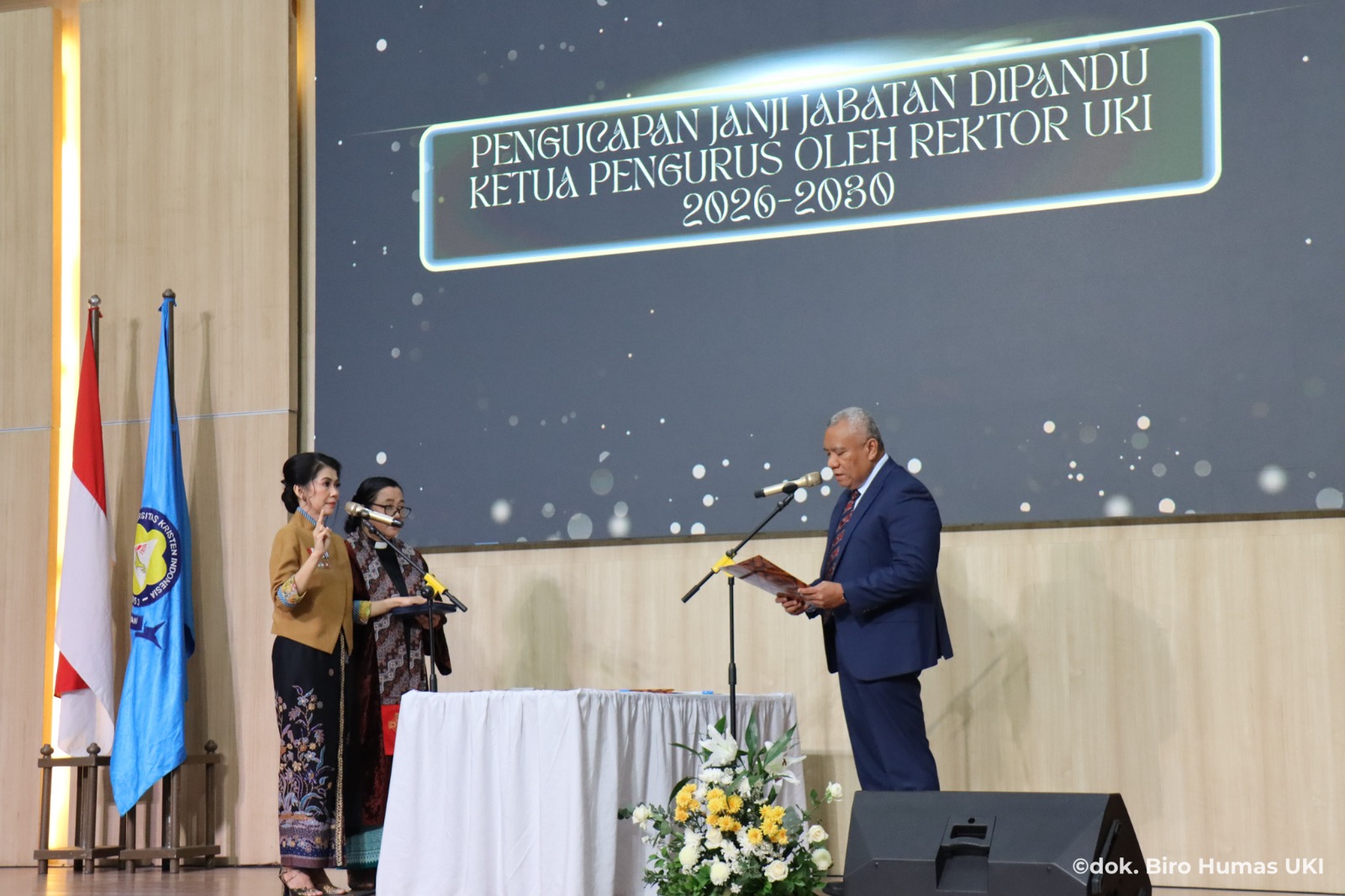When Faiths Collide and Converse: CCA Inter-religious Conference Testimony
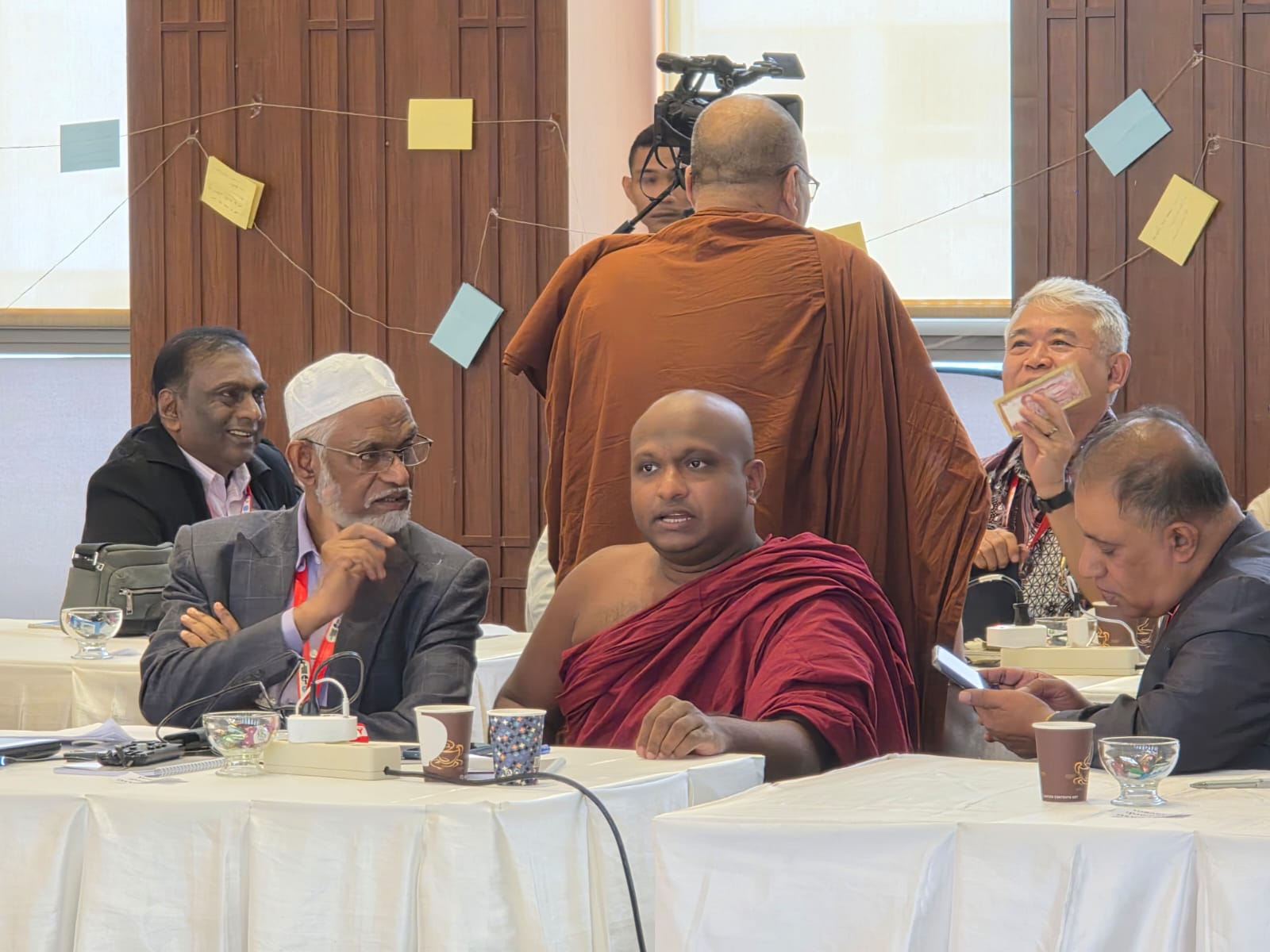

Nadia Manuputty
19 Sep 2025 19:00
Jakarta’s afternoon was heavy with humidity. On the fifth floor of the Communion of Churches in Indonesia (PGI) Auditorium, chandelier lights shimmered above while the cool hum of the air conditioning mixed with the scent of freshly brewed coffee. Seated side by side were interfaith leaders from thirteen nations: a white turban falling gently across a shoulder, a simple orange robe folded like the lines of a rice field, and a long black cassock with a silver cross glinting at its center.
From a distance, the room looked like a living mosaic of faiths. Yet beneath the warm greetings and soft smiles, there lingered a subtle tension, visible in fleeting glances, as if each carried the weight of history and unhealed wounds. Here, hopes and prayers for religious freedom reached beyond political slogans.
Ash Sheikh S.H.M. Faleel, a Muslim cleric from Sri Lanka, spoke in a voice so low it almost faded into the air, but his words cut sharp. With years of experience navigating coexistence and post–civil war reconciliation, he reminded the hall:
“Freedom of religion and the protection of minorities are not merely matters of law, but of lived reality.”
For Faleel, the conference was a chance to take the pulse of minority communities across borders, “including the wounds so often concealed.” But he warned: such gatherings can risk harm if they reduce themselves to endless rehearsals of pain without a clear methodology. “Stop trading in pain. We need roadmaps, research, and the courage to formulate solutions,” he pressed, cautioning that without strategy, even good intentions could plant seeds of radicalization. Indonesia, he added, is “a global mirror”, a laboratory of tolerance, yet one that carries vulnerabilities familiar to many nations.
A few seats away, the calm presence of Rev. Kekirawe Sudassana Thero, a Buddhist bhikkhu, drew quiet attention. His crimson robe, folded with the precision of paddy fields, was deliberately simple, rooted in closeness to nature and the people.
With a shy smile and halting English punctuated by frequent “sorrys,” his words carried a disarming honesty. “Conflict is duality. It cannot be explained with one hand alone. We must hear the stories of both hands.”
For Sudassana, the value of the gathering lay in its chorus of voices from 13 countries. But he, too, was restless: too many presentations ended at conflict stories, rarely underpinned by deeper research. From Sri Lanka to Indonesia, he saw the same pattern: people able to live together, but politics inflaming differences into sparks. His reminder was firm, almost timeless: “Truth is what lasts. Politics is limited, but truth opens the way.”
In contrast, His Grace Bishop Daniel, a Coptic Orthodox bishop from Australia, stood out in his flowing black cassock and gleaming silver cross. His voice was full yet gentle, carrying the stories of the Coptic diaspora in Southeast Asia, communities often living at the edge of legal recognition.
“I have learned much here. This conference opened my mind,” he said. Hearing the suffering of Asian minorities in person, he admitted, was far more powerful than reading reports from his desk. Yet he would not stop at empathy. “We need structure. The Church must have legal teams, business associations, youth associations. Otherwise, we are only reactive when conflicts erupt.”
He called for building bridges with governments long before crises, and for action rooted in love. “Love → trust → dialogue → action. First comes love, then trust. From there, dialogue, and finally, action.” His reflections stretched from Pakistan’s blasphemy laws to domestic violence in Australia, all tied together by a single thread: human dignity.
Some presentations may have been carried by emotion, but these three voices offered balance. The Muslim cleric with his methodological critique, the bhikkhu with his call to hear both sides, and the bishop with his roadmap of love and structure. From different traditions, they converged on the same conviction: interfaith conferences cannot remain stages for sorrow. They must become places of rigorous methodology, honest dialogue, and concrete strategy.
Indonesia, the host, was often described as a “laboratory of tolerance.” Yet within that hall, the consensus was sharper: Indonesia was not just a model to be admired, but a global mirror. The face of harmony and the shadow of fragility coexisted clearly, no different from Sri Lanka, Bangladesh, or Australia.
When the day closed with interfaith prayers, silence filled the hall. White turbans, orange robes, and black cassocks stood shoulder to shoulder. Hands folded, eyes closed, and for a fleeting moment, history’s wounds seemed to loosen their grip.
But when the prayer ended, a question still hung in the air: is the world ready to stop trading in pain, and to transform the narrative of wounds into strategies of healing, so that religious freedom becomes not just rhetoric, but a lived reality?
Berikan Komentar
Alamat email anda tidak akan dipublish, form yang wajib diisi *
Berita & Peristiwa
Penolakan Terhadap PSN, PGI Diapresiasi Akademisi dan Pekerja Lingkung...
JAKARTA,PGI.OR.ID-Penolakan Persekutuan Gereja-gereja di Indonesia (PGI) terhadap Proyek Strategis Nasional (P...
Audiensi MGMP PAK SMA–SMK DKI Jakarta ke PGI. Perkuat Sinergi Pend...
JAKARTA,PGI.OR.ID-Persekutuan Gereja-gereja di Indonesia (PGI) menerima audiensi Musyawarah Guru Mata Pelajara...
Prof. Angel Damayanti Resmi Dilantik sebagai Rektor UKI yang Baru. PGI...
JAKARTA,PGI.OR.ID-Prof. Angel Damayanti resmi melanjutkan estafet kepemimpinan sebagai Rektor Universitas Kri...


